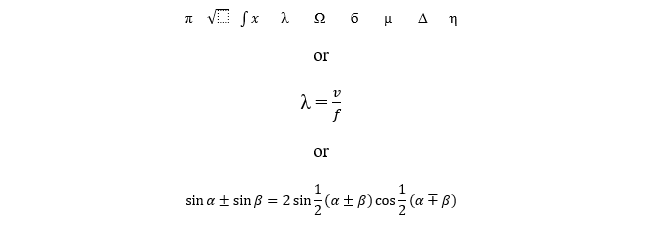As an author and educator for more than thirty years, I have found the #1 obstacle to prospective sonographers in passing their board certifications is an underlying discomfort with mathematics and computation.

Those who struggle with this belief often have convinced themselves “I’m just not a Math person” somewhere along the way. Heaven forbid, maybe even a teacher told them this. However, my observation has been that the overwhelming majority of students simply suffer from a lack of familiarity with math concepts, not any actual intellectual disability. Most often, it is a lack of exposure, and not any permanent limitation.
With that in mind, last week during Pegasus Lectures monthly Office Hours, I fielded an all too common questions:
What is the best way to help students who still struggle with math concepts within a physics course?
I wanted to share my answer and expand on it today, because it is heartbreaking to see the genuine fear that many students feel when they are confronted with relational physical equations consisting of variables.
Among those affected by Numerophobia…yes, they actually gave it a name as an anxiety disorder…there are subsets:
The Denialist, who says math doesn’t matter and the ultrasound equipment will do all the work. It’s a heavy lift to turn these people around, because they willfully choose to ignore reality…

and the class that I hope to encourage today,
The Unaccustomed, which is to say people who have not built up a familiarity with math long enough to overcome their initial unease. This is most of the battle, just pushing through your own anxiety.
Most would agree that these symbols are harmless to the average young adult:
+ – x ÷ = < > %
Why they seem unintimidating is likely because we had to work with them since elementary school.
But what happens when we are first exposed to these symbols?

YIKES!!! Your flight instinct may trigger, but that’s 100% due to unfamiliarity. You might have the same reaction if you had never seen a giraffe before. But, since giraffes are a staple of children’s book illustrations, you are familiar with the animal, even if you’ve never seen one in-person. Most importantly, you hopefully learned somewhere along the way that giraffes are herbivores, so you are not in imminent danger.

In the same way, Math isn’t going to “bite you” … unless you charge too much on your credit cards. Getting back to the point, behind each of these “weird” symbols is just a concept, we only need to visualize…either by life experience or analogy. The expression I used was to Make the Math Real
So, let’s start with the simple “Speed equation”: S =
OMG! You’re lost already. There are no numbers! How does this tell me anything?
Well, first step is to think about the variables and how they may relate to your common experience. S equals speed. Anyone who’s ever commuted to work understands speed. If you drive faster, you’ll get there faster. Stated another way, when your speed is higher, your time (T) gets lower. That’s an inverse relationship.
S ∝
You also understand if something is farther away, it takes more time to get there. So the relationship between distance (D) and time is a direct relationship. Greater distances take more time to get there.
D ∝ T
Lastly, you understand that driving faster moves you greater distances. So the relationship between speed and distance is a direct relationship. Drive faster, go farther.
S ∝ D
So you can see that just by using observational experience, the equation S = actually makes sense. Do this often enough, and it is no longer about memorizing an equation. It becomes common sense.
“I’m late for work; I need to drive faster.”
“I’ve got a long trip ahead; I’d better leave early.”
“The Starbuck’s is ten miles away; they’ll be closed by the time I get there.”
This takes me to a simple maxim: Before any equation, there is an observation

This is the take-away I hope you will embrace as you grow into a career. The history of science is littered with stories of sometimes everyday people discovering great concepts, simply by observing their macroscopic environment.
Some of these stories, whether accurate or hagiographic may be familiar to you:
Archimedes and a bathtub overflowing (principles of buoyancy).
Isaac Newton and a falling apple (principles of gravity).
Percy Spencer and a melted candy bar (creator of the microwave oven).

While you are probably saying “Whatever, dude…those people are legendary”, I would point out that if the quality of your present or future scanning identifies a thrombus or a suspect adenoma that otherwise would have been missed, that’s not a bad day’s work.
Frank Miele, MSEE , President of Pegasus Lectures, Inc. Frank graduated cum laude from Dartmouth College with a triple major in physics, mathematics, and engineering. While at Dartmouth, he was a Proctor Scholar and received citations for academic excellence in comparative literature, atomic physics and quantum mechanics, and real analysis. Frank was a research and design engineer and project leader, designing ultrasound equipment and electronics for more than ten years at Hewlett Packard Company. As a designer of ultrasound, he has lectured across the country to sonographers, physicians, engineers and students on myriad topics.
